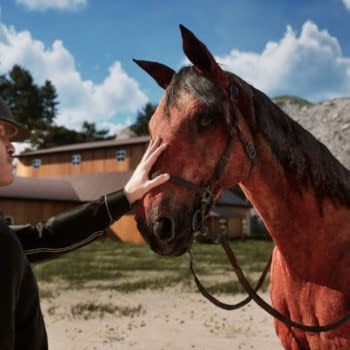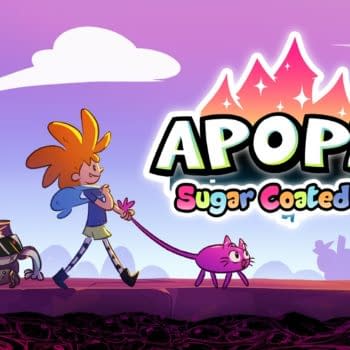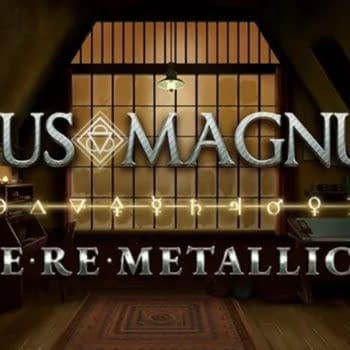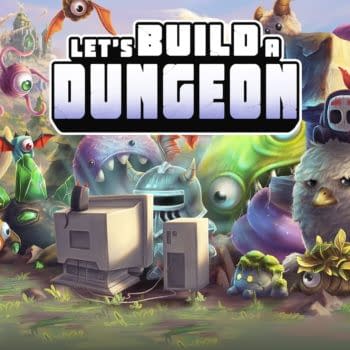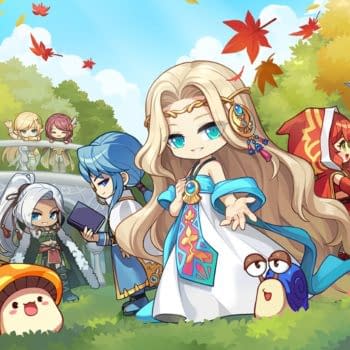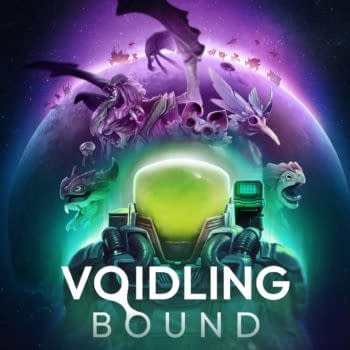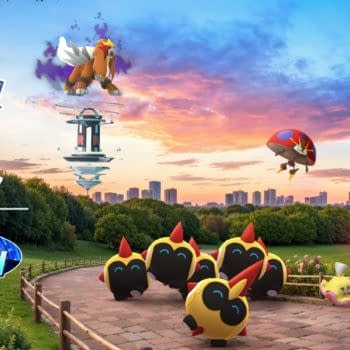Posted in: Games, Interview, Role Playing Games, Tabletop | Tagged: James D’Amato, The RPG Campfire Card Deck
James D'Amato Interview: Chatting About The RPG Campfire Card Deck
We had a chance to chat with author James D'Amato about the work that went into his most recent release, The RPG Campfire Card Deck.
One of the more popular RPG resource guides that have come out over the past few years is The Ultimate RPG Series. Penned by James D'Amato, the co-founder of the One Shot Podcast Network, and host of the One Shot and Campaign: Skyjacks podcasts, he has utilized his knowledge of how TTRPG systems work to introduce new people to role-playing through his books. Which he has done through a mixture of improvisational storytelling techniques to create unique RPG campaigns and one-shot adventures, as well as guides for those who may need a little help. His most recent release, The RPG Campfire Card Deck, is designed to help you define your character with others in your party and learn more about each other on a creative level. We had a chance to chat with D'Amato about the recent release and this thoughts on the impact he hopes it will have.
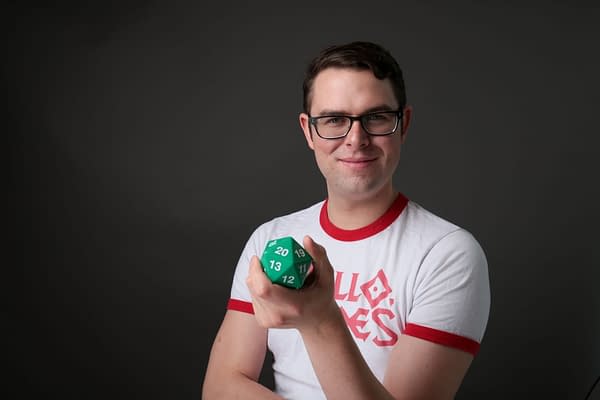
BC: Hey James! First thing, how have things been going for you this year?
JD: I'll admit this hasn't been my favorite year. However, there are some cool things on the way that I'm definitely looking forward to.
You've been working on your own series of Ultimate RPG guides. What's it been like creating that series?
It's honestly been a pretty wild experience. I am dyslexic, and I have ADHD. "Author" is a profession I could have never imagined for myself. I actually only started doing this partially by accident. Rebecca, my editor at Adams Media, found me through my podcasting work and approached me to write a sample for The Ultimate RPG Character Backstory Guide. The concept for that one was 100 exercises people could do to add interesting stuff to an RPG character's backstory. I had initially assumed it was an anthology, and I was more than happy to contribute to it. It wasn't until I received the contract that I realized they meant for me to write the whole thing. I was really intimidated by that prospect and took a bit to decide if I was up to it. Thanks to a little prodding from my spouse and Rebecca, I went for it. Now I'm here like five projects later and loving it. The Ultimate RPG Guide series has been a really interesting thing to develop. I wanted it to work differently than the other books like it on the market, which mostly had random tables. I wanted to take advantage of mechanics that were developed in Indy RPGs and thoughtful leading questions to open up readers to new possibilities. I'm really happy with how the series is turning out.
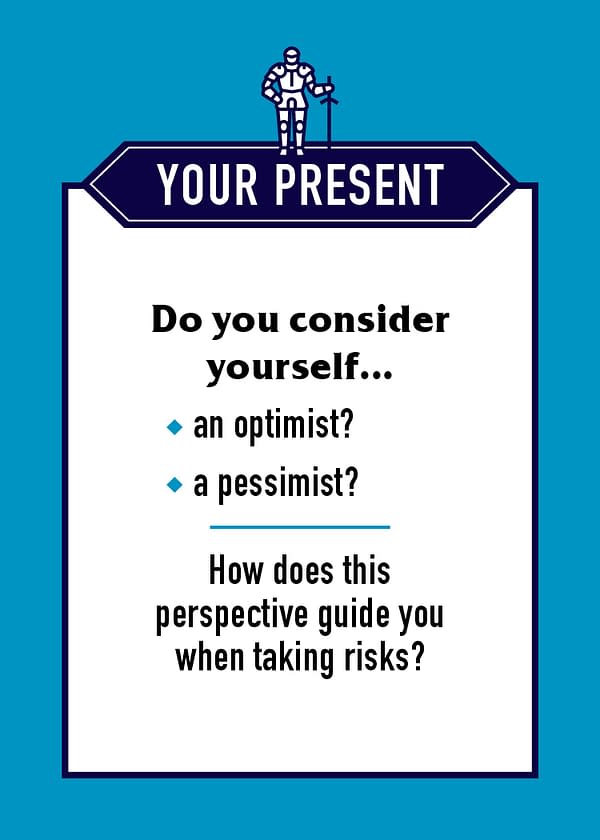
Last year, you released The Ultimate RPG Character Backstory Guide: Expanded Genres Edition. How was it seeing that one take-off?
It's so funny that you mentioned this one! It's hilariously the one in the series that really didn't take off. We think it has something to do with the title. The expanded genres RPG guide is an all-new take on the concept for my first book but expanding the scope outside of just fantasy. However, now we think the title we went with, including the word "edition," may have led some folks to believe that it was just a revised edition of the first book with a few new exercises slapped onto it instead of something totally new. Rebecca and I are now trying to figure out a way to add "2" on the cover. I really hope that helps, though. I'm proud of what I did on that book and I think people will really have fun with it.
Getting to the subject today, how did the idea of making a card deck come about?
I have been courting my publisher to do card-based gaming products for a few years. I think it's a really approachable format for a type of game that is intimidating for some people to pick up. A lot of this is born out of my admiration for a role-playing game called For the Queen, which is played entirely through people answering question prompts on cards. It works with a group of any size, and you can play a satisfying game in 30 minutes to 2 hours. That's pretty impressive, considering most RPGs need a good 3 to 4 hours! It's such an approachable game, and it is beautiful too. I think it has gotten and will get so many more people to pick up RPGs for the first time. I think it also challenges the conception of what an RPG can be to some people who already play them. Working with Adams Media– which is more of the main market publisher– I see a tremendous opportunity to get games like that into more people's hands. But card products are kind of new to this publisher. So, it was tough getting them to take the risk on both their first actual role-playing game and first card deck at the same time.
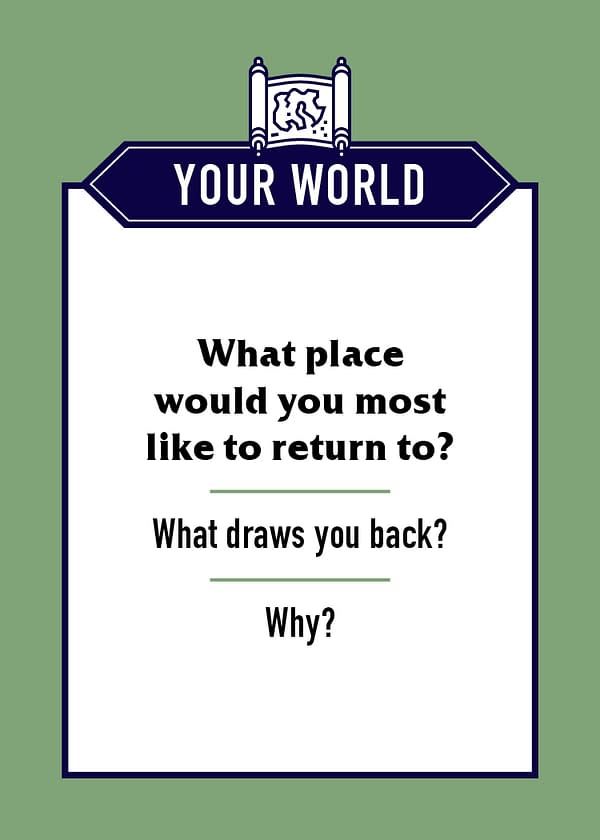
How did you end up deciding to do a conversational deck?
My spouse and I had our first kid recently. In the early days, we were so worn out from working and caring for the baby that, at the end of the day, we didn't have the energy to think of something to talk about. My therapist suggested we try some conversation decks to kickstart our chats when we were tired. I picked up a few for us to try out. What I found were products that didn't seem to be well thought through. Many decks just had rephrased versions of the same question presented over and over, and more than a few had questions that really seemed like they could only introduce conflict between people. It struck me that there wasn't a strong game design ethos behind these decks. When I– or any game designer– is creating mechanics, part of the process is thinking carefully about how and what your mechanics are helping or incentivizing people to do. There is a goal, and the mechanics introduced help people reach that goal. These conversation decks were wanted and necessary products. If designed well, they could definitely foster intimacy between people.
And, of course, being a role-playing guy, I also happen to know that games are far and away more fun when the characters in your party feel like they have really distinct personalities and established relational dynamics. So, it wasn't a big leap to ask, "Could I make this concept work for RPG characters?" I went out and bought a bunch more conversation decks to really dissect the "game design" within these products. I was actually able to take advantage of the flaws in some of them. In an RPG introducing conflict between characters can actually be an interesting and fun scene to play out. At the end of the day, I made something that I think people are really going to have fun playing with.
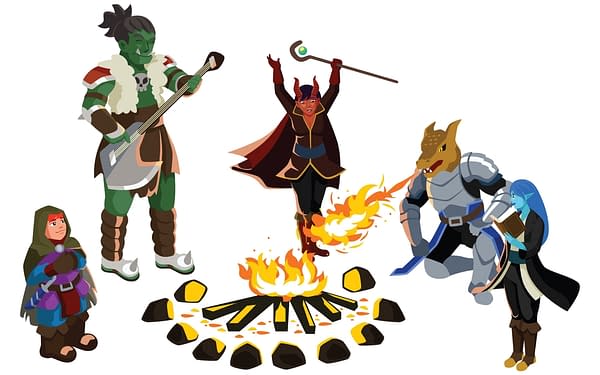
What was the process like for you in deciding what kind of conversations were a must to add to the deck?
The primary focus of the deck was creating possibilities for intimacy, curiosity, and connection. I wanted questions that would help people work their established backstories into the game, encourage characters to seek out information about each other, and that might lead to players developing new relationship dynamics for their characters. I think there are a lot of different ways to access those goals. But I wanted the process to feel fun. Kind of like your characters are at a sleepover together. That's where the "campfire" aspect of the product kicks in. I wanted this to be the sort of conversation you could imagine your character's having as they sit around a fire after a full day of adventure. There's nothing to do but get to know each other, and invest in these people who have your back in life-or-death situations.
How did you eventually end up breaking things down into six categories?
A big part of my motivation was giving players ways to select their own experience with the product. A lot of my design is informed by indie RPGs, which have a greater sense of shared control over things like worldbuilding. In a trad game that mostly sits with the game master. Some of the questions in this game ask players to come up with things like where their character grew up or a place their character has always wanted to visit. For that, you need some liberty to make up your own ideas about the world. That's not going to work for every group. So I segmented those questions into their own category. Players also might have varying needs to introduce their backstory elements to the game or interest in questions that draw characters to speculate about and interact with each other. The categories exist so that players can easily balance the game to investigate what they are most interested in. Each category is really just designed to foster these discoveries in different ways.
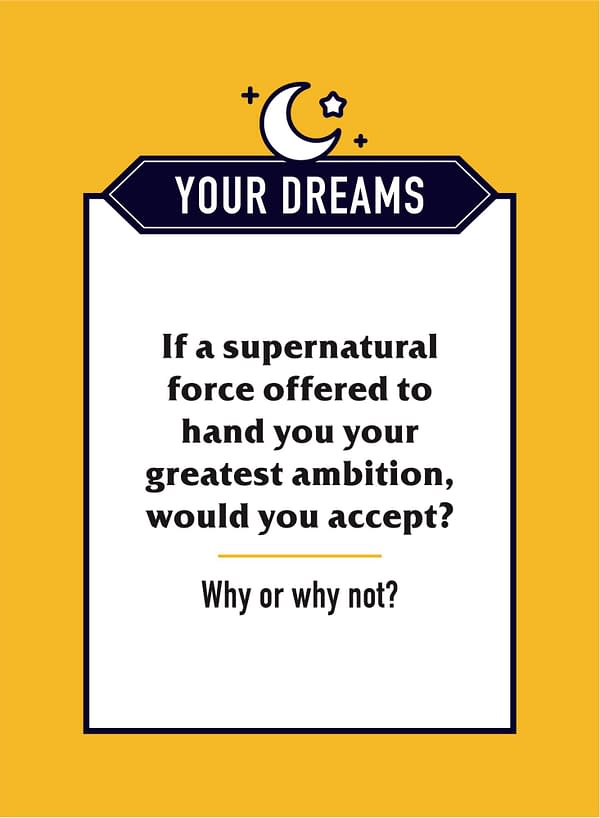
What was your experience like testing it in campaigns and with friends before launching it?
Honestly so much fun! One of the concepts that I'm really enamored with for this product is approaching it like a diegetic item within the game. The idea that the nerdy paladin of the group comes to the fire one night with a box and says, "It really feels like we should get to know each other better," is so funny to me. In most of my playtesting, I contrived ways for one of the characters to bring it to the rest of their group as though it was an in-universe product. And in the games we used it, the cards have really affected the ways those characters bonded.
What do you hope players and DMs take away from the experience of using the deck?
Honestly, this is an invitation for players to treat their characters like people. To think of the brave adventurer that they are playing as someone who has a favorite meal, who once imagined a different life for themselves, who looks across a crackling fire and sees people that they want to be friends with. To me, that is a magical discovery.
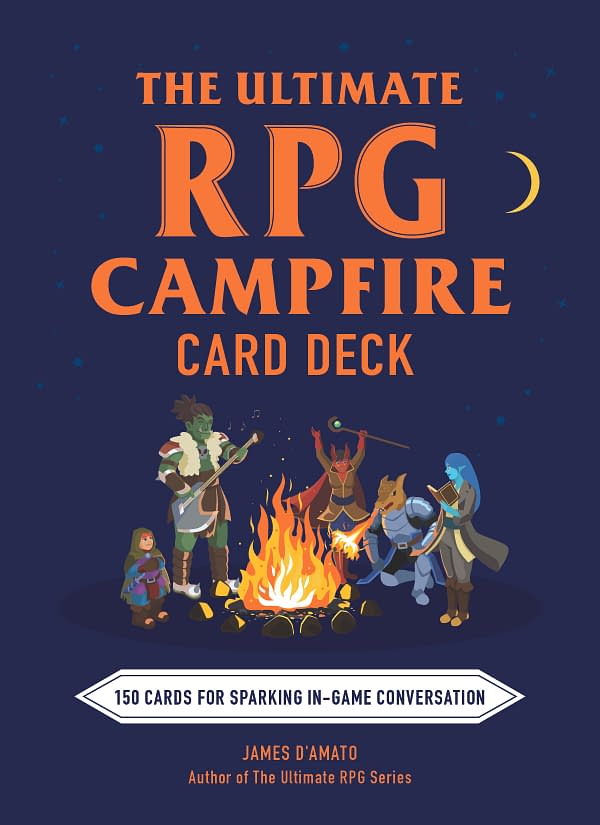
What else are you working on that you can tell us about?
Well, right now, for Adams Media, I am working on an Ultimate RPG Guide for Game Masters. This would be similar to my Gameplay Guide– obviously, with a greater focus on the game master role. I'm still in the middle of drafting, but I really like the way that it's turning out. I'm hoping that it gives more people the confidence to step up and try GMing for the first time. I also hope it helps experienced GMs approach the game in new ways.
Is there anything else you'd like to promote or plug?
Over in my podcasting work, I GM the Campaign: Skyjacks actual play show. It's a folktale-punk show about sky pirates inspired by the music of The Decemberists. We're entering a new arc that I'm really excited about. We're playing with the classic "infiltrate a masquerade ball" trope. In August, I'm also launching a new spin-off of Skyjacks called Skyjoust. It uses a custom expansion to the sports anime-inspired role-playing game Fight With Spirit. It tells the story of young athletes competing to be champions in a jousting league where athletes ride on the backs of giant birds. We've set up four teams that all of our listeners can get invested in and support. However, the game will decide who takes the title, so the competition and stakes in the game are real. It's been absolutely thrilling to play out! And we worked with the designers of Fight With Spirit to create an expansion that anybody can buy and play. It's a really exciting new approach to the actual play format, and I can't wait to see what our listeners think of it. You can find Campaign: Skyjacks on Apple podcasts, Spotify, and your favorite podcast app. You'll be able to find Skyjoust when it launches in August.





